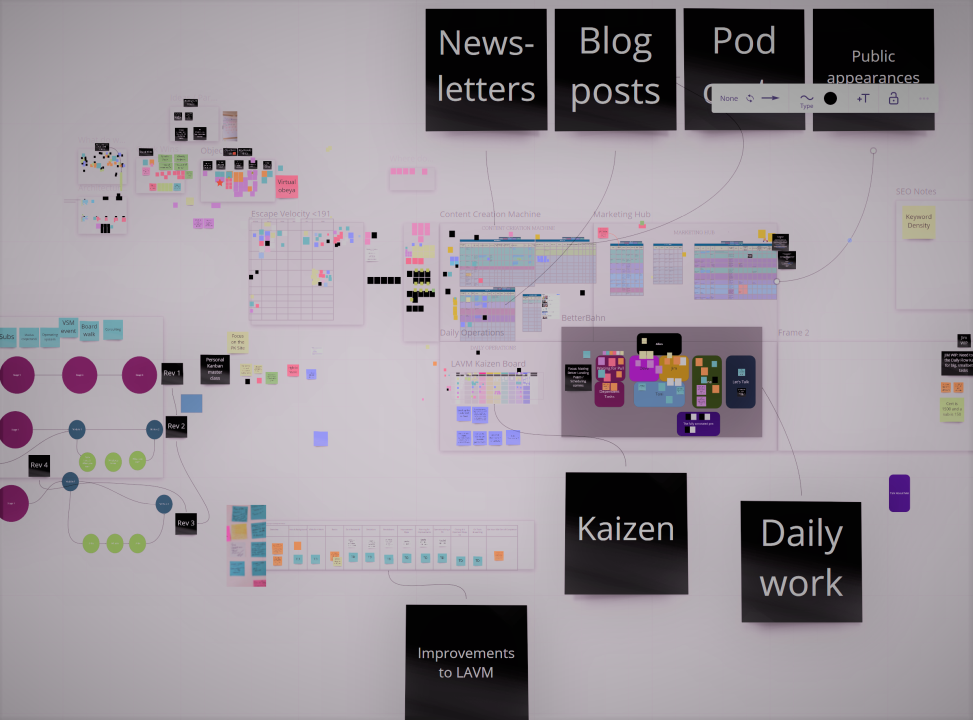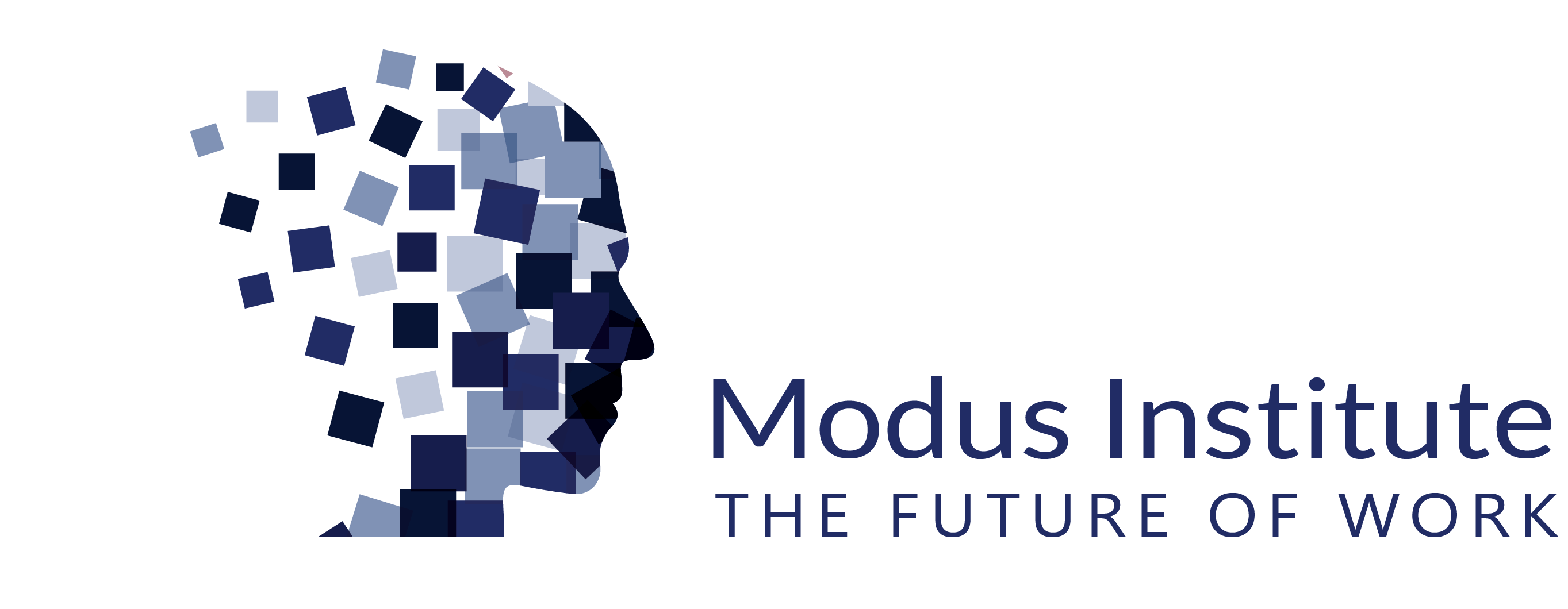Always Evolving Obeya
Oct 14
/
Jim Benson
A kanban or a Personal Kanban is essential for the healthy operations of any team. Professionals must know what is going on, who is doing it, what is stuck, and why in order to make good decisions, select the right work at the right time, and help each other. If you aren’t visualizing that, you are flying blind.
But a kanban alone is never enough for teams of creative professionals. Never. If your kanban tells you everything you need to know, you are assembling, not creating.
Modern knowledge work requires an Obeya.
But a kanban alone is never enough for teams of creative professionals. Never. If your kanban tells you everything you need to know, you are assembling, not creating.
Modern knowledge work requires an Obeya.
What is an Obeya?
An Obeya is a room (in our case virtual) where all the information needed to steer a team, project, or company is readily available. We have built or seen Obeyas in dozens of Lean projects from appliance manufacture to software development to major construction.
Simply put, an Obeya is a single location that provides professionals with the information they need to do their job.
Simply put, an Obeya is a single location that provides professionals with the information they need to do their job.

In our Obeya at Modus Institute, we have large sections that are tracking not only daily work, but all the work we are responsible for. Marketing, content creation, contracting, legal, maintenance, kaizen, and other tasks. We do this because we are a real business, like most of you. We have expectations placed on us that don’t necessarily flow from left to right. The expectations can also change from day to day. The Obeya is always changing, always shifting to provide relevant and timely information.
Anyone who has written a book, posted a blog post, created a flyer, or shot a quick video know that a good section of knowledge work is editing. We can call it other things, but even in software development, professional teams rely on pair programming and peer review. In banking, large loans require multiple signatures. It’s all just work.
Anyone who has written a book, posted a blog post, created a flyer, or shot a quick video know that a good section of knowledge work is editing. We can call it other things, but even in software development, professional teams rely on pair programming and peer review. In banking, large loans require multiple signatures. It’s all just work.
The Always Evolving Obeya
The invitation is to read our multi-part posts on some examples of the Obeya used by Modus Institute.
Our obeyas are constantly evolving because new information comes along that requires analysis and, ultimately, actions and tasks to integrate that information into our objectives both short- and long-term.
Our obeyas are constantly evolving because new information comes along that requires analysis and, ultimately, actions and tasks to integrate that information into our objectives both short- and long-term.
Further Reading


We are an online educational platform that helps professionals and aspiring individuals to succeed in their goals.
Copyright © 2025